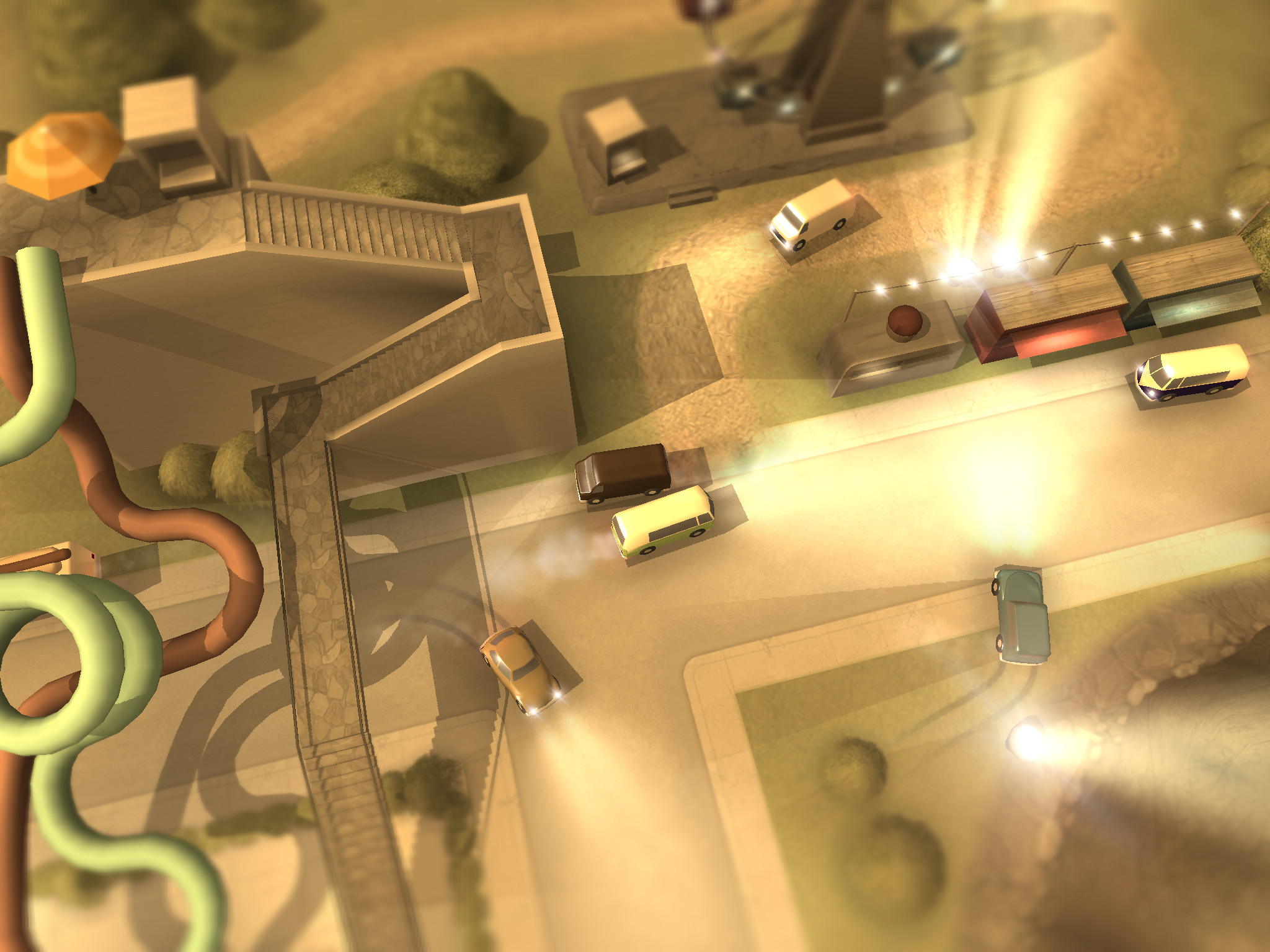Trending
Opinion: How will Project 2025 impact game developers?
The Heritage Foundation's manifesto for the possible next administration could do great harm to many, including large portions of the game development community.

Featured Blog | This community-written post highlights the best of what the game industry has to offer. Read more like it on the Game Developer Blogs or learn how to Submit Your Own Blog Post
In this post, composer/sound designer Douglas Holmquist talks about the creative process behind the music in Mediocre's game Does not Commute.


Writing and recording the music for Does Not Commute was just as fun and challenging as always working with Mediocre. The idea to let the game take place in the late 60's/early 70's came quite early in the process, so we started talking about reference music from that era that could fit the game. In the beginning we leaned towards a loungey, latin-jazz sound, with lots of flute, vibraphone and some light percussion. The first reference tracks that really fit with the early versions of the game were quite contemporary though - Rolfe Kent's brilliant soundtrack from the movie Sideways. (Miles' Theme and Drive! in particular.) I started digging for more stuff in that style and found some great tracks by The Modern Jazz Quartet, Yusef Lateef and Cal Tjader that had sort of the same vibe and level of intensity. So I started writing music in that vein, but after a while we felt that the lounge/latin thing felt too soft, since the game had developed into something slightly more action-based than in the early versions. Dennis and Henrik started looking for new reference points and found that the Henry Mancini song Sorta Blue (from the Peter Gunn soundtrack) had the right vibe. So we went for more of a classic 60’s/70’s movie score sound, but in a smaller setting. The bluesy, but very composed and arranged style was perfect as a starting point for the first level of the game. Since Does Not Commute doesn’t have a menu/theme song, the music for the first level needed to kind of play that part as well. I borrowed the classic jazz trope of having a mid tempo swing rhythm played on a slightly open hi-hat, and started writing a blues based but melodic riff on top of it. I hade recently bought an electric bass so I was inspired to write songs starting with the bass line and then adding guitar and keyboards and whatnot to it. (Usually I do it the other way around.) I have a soft spot doubling a bass line with a muted electric guitar an octave above it, a technique that I probably picked up from old movie soundtracks.
Once the music for the first level was done, things started moving a little faster with the rest of the songs. The music for Beach in particular, which I came up with during a bike ride after a meeting with Dennis and Henrik, where we had discussed the levels and Henrik said that we perhaps ought to try something like 60’s surf rock kind of sound. I hummed the melodies and the riff into my iPhone, and recorded the demo the next morning.
In the track for Metropolis, I got to live out somewhat of a dream of mine - to make a 70’s style fusion song that has fun and tricky melodies but is really concise and has no solos. And for Theme Park I got write a song inspired by old barrel organs, but with with slightly jazzier harmonies. (Before that, I did make two sketches that were scrapped though - one with kind of a marching band/mardi gras sound and one klezmer inspired song. Those sketches will be missed by no one…)
When all the demos were approved, I booked the musicians for a four day recording session. Bass player Robert has played on the soundtracks for Granny Smith and Sprinkle Islands, but the drummer Andreas Baw and the sax/flute player Olle Wikström were relatively new acquaintances of mine. It all fell in to place really quickly though, and we were sort of ahead of schedule the whole time, so we got to have some really nice lunches and coffee breaks (which isn’t usually the case when you’re recording on a tight schedule…).

Once the initial recordings were done, I started recording all the overdubs. During the sessions, I had played either guitar, rhodes or organ, so I added vibraphone, glockenspiel and the rest of the intstruments that put the final touch to it all.
Read more about:
Featured BlogsYou May Also Like